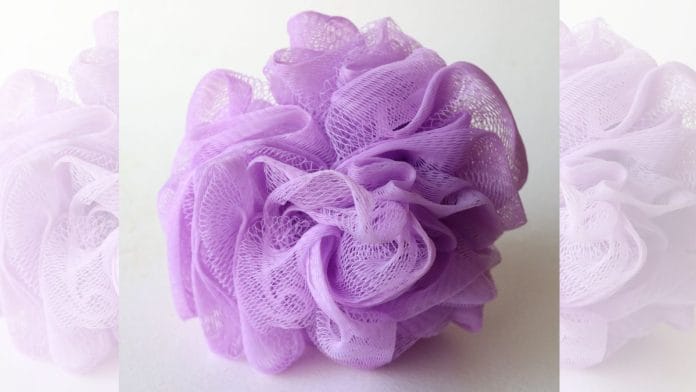There are some skincare fads and products that have no business being anywhere near skin—but unfortunately, still find their way into daily routines.
It’s easy to get swept up in the latest trends and products promising flawless skin. However, not all popular products benefit your skin in the long run. Some can do more harm than good.
Let’s dive into three widely used skincare products—makeup wipes, loofahs, and apricot scrubs—that you might want to reconsider.
Makeup wipes
Makeup wipes are a staple in many beauty routines due to their convenience. They promise quick and easy removal of makeup, which is especially appealing after a long day or a late night out.
Why you should avoid them
- Harsh ingredients: Many makeup wipes are packed with alcohol and other strong chemicals that can deplete your skin of its natural oils. This eventually leads to dryness, skin irritation and possible breakouts.
- Skin irritation: The physical act of wiping your skin with these products can cause friction, leading to redness and irritation. This is even worse for people with sensitive skin.
- Ineffective cleaning: Makeup wipes often leave behind residue, meaning your skin isn’t truly clean. Residual makeup and grime can clog pores, leading to acne and other skin issues.
- Environmental impact: Most makeup wipes are non-biodegradable. They often end up in landfills or, worse, in the ocean, harming wildlife.
Alternative: For gentle yet effective makeup removal, consider using micellar water or oil-based cleansers. These options dissolve makeup without harsh rubbing and are generally much kinder to your skin. Additionally, pairing these with reusable cotton pads or soft washcloths can make your routine more sustainable.
The bottom line is that however late it gets or tired you are, don’t rely on a quick fix.
Also read: Natural products, home remedies benefit Indian skin. Remember, they’re not a cure-all
Loofahs
Loofahs are celebrated for their exfoliating properties, which promise to leave your skin feeling smooth and refreshed.
Why you should avoid them:
- Abrasive nature: While exfoliation is crucial for removing dead skin cells, loofahs can be too harsh. Their rough texture can cause micro-tears in your skin, leading to irritation and increased sensitivity.
- Bacterial growth: Loofahs are a breeding ground for bacteria, mould, and mildew. Their porous nature retains moisture, making them the perfect environment for microbial growth, which can then be transferred to your skin, causing infections.
- Over-exfoliation risk: Regular use of loofahs can strip away your skin’s natural oils, compromising its barrier function. This can result in dry, irritated skin and can make your skin more prone to environmental damage.
People with conditions like leukoderma, vitiligo, autoimmune disorders such as lichen planus, or black patches above the bra strap area called amyloidosis, which is very common in Indian women should be especially cautious. Using loofahs and scrubs can exacerbate their condition, potentially spreading the disease further across their body.
Alternative: Consider gentler exfoliating options such as soft washcloths or silicone scrubbers, which are easier to clean and less likely to harbour bacteria.
Here are some questions I pose to my patients when guiding them on the best alternatives to a plastic loofah:
- Is the alternative budget-friendly? If it’s pricey, will it offer long-term use to justify the cost?
- Does it require regular replacement? If so, how often and at what cost?
- Is it made from safe materials? Check if it’s antimicrobial, eco-friendly, sustainably sourced, non-toxic, and allergen-free. Are these claims backed by research?
- Is it easy to clean? If the cleaning process is complex, does it help extend the product’s lifespan?
- Is it suitable for your skin? Could any of the materials used to make it trigger any allergic reactions in you?
Also read: Monsoon isn’t fun for hair. Here are some hacks to avoid dandruff, frizz and shedding
Apricot-based scrubs
Apricot scrubs have been a beloved skincare product for decades. Marketed as natural and effective exfoliants, they promise to reveal smoother, clearer skin by sloughing away dead skin cells. But again, it’s not that simple.
Why you should avoid them:
- Harsh particles: The ground apricot seeds in these scrubs have jagged edges that can cause micro-tears in your skin. These tiny tears can lead to inflammation, irritation, and increased sensitivity over time.
- Skin damage: Regular use of apricot scrubs can lead to significant skin damage, particularly for sensitive or acne-prone skin. The abrasive action can exacerbate skin conditions, leading to more breakouts and longer healing times.
Alternative: I can speak for dermatologists everywhere when I say that anything that you use to exfoliate your skin should not have a grainy texture. This sort of product should never be used on your skin much less scrubbed onto it.
If you still yearn for the freshly polished sensation that a physical exfoliant provides, consider opting for hydrogenated jojoba beads instead. It can be found in salt scrubs and face washes. Enzyme-based exfoliants derived from fruits like papaya and pineapple are another excellent option for gentle exfoliation. These ingredients help to dissolve dead skin cells without the risk of physical damage.
While makeup wipes, loofahs, and apricot scrubs are popular in the skincare world, their potential to harm your skin far outweighs their benefits. By opting for gentler, more effective alternatives, you can maintain a healthier skincare routine that promotes lasting skin health. Short-term fixes will always lead to long-term disasters if you’re not careful. Your skin needs to feel healthy from the inside so it can shine on the outside and for that, it needs all the nourishment it can get.
Dr Deepali Bhardwaj is a Consultant Dermatologist, Max Hospital, Saket. She is also an anti-allergy specialist, laser surgeon and internationally trained aesthetician. She tweets @dermatdoc. Views are personal.
(Edited by Theres Sudeep)







Very informative artical by Dr Deepali.
Thanks for sharing
Excellent Information ?
Excellent information ?
Thought provoking. Simple things we have been using for years without knowing their side effects. Thanx